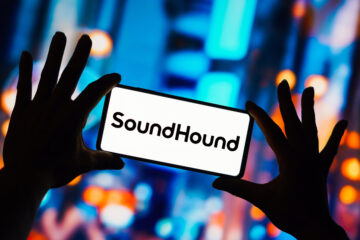Sony buys Bungie, the studio behind video games “Halo” and “Destiny”, for $3.6 Million.
Sony has announced plans to purchase the video game studio Bungie, makers of the popular “Destiny” and “Halo” franchises, for $3.6 billion dollars.
As you might have heard, Sony (SNE) – Get Sony Corp. Report owns the PlayStation, which makes this the most high-profile acquisition by a video game console of a popular game studio since earlier this month when Microsoft (MSFT) – Get Microsoft Corporation Report, owner of Xbox, purchased Activision Blizzard (ATVI) – Get Activision Blizzard, Inc. Report, makers of popular titles “Warcraft,” “Diablo,” “Overwatch,” “Call of Duty” and addictive mobile phone game “Candy Crush” in an all-cash deal valued at $68.7 billion.
“Bungie makes games with outstanding technology that are enormously fun to play,” said Hermen Hulst, Head of PlayStation Studios in a blog post. “They also have unmatched dedication to the communities that play their games, and everyone at PlayStation, and PlayStation Studios, will be excited about what we can share and learn from them.”
The Console Competition Is Heating Up
Sony’s purchase of Bungie shows that just as every film studio and network in the world is trying to milk its intellectual property for all its worth, the leading video game console manufacturers are also trying to make sure they have enough content on hand to feed one of the most rapidly growing markets in the entertainment industry.
Microsoft’s acquisition of Activision Blizzard will make it the world’s third-largest video game maker, once the deal goes through. Sony is still the world’s biggest video game company, but it’s clearly not content to rest of its laurels.
As part of the deal, Sony will get access to Bungie’s live game services and technology expertise, while the company will provide its resources to support further evolution of Bungie and “its ability to create iconic worlds across multiple platforms and media,” said Kenichiro Yoshida, Chairman, President and CEO, Sony Group Corporation in a statement.
Microsoft actually purchased Bungie in 2000, and its game “Halo: Combat Evolved” was one of the first available on the Xbox when it launched in 2001. Bungie split from Microsoft in 2007, and become an independent company, while Microsoft held onto the rights to the Halo franchise, which will soon launch a television adaptation for Paramount+.
Both of Microsoft and Sony’s recent purchases are still subject to Federal Trade Commission’s approval, which could perhaps complicated matters. Regulators and lawmakers are looking closely at breaking up giant technology firms with anti-trust lawsuits, amid growing concerns that companies are accruing too much influence and building monopolies in an attempt to squash competition.
Bungie Plans To Remain Independent
Founded in 1991, Bungie is based in Bellevue, Washington and has more than 900 employees. As part of the deal, it will continue to have creative autonomy. “We remain in charge of our destiny. We will continue to independently publish and creatively develop our games,” said Pete Parsons, CEO of Bungie in a statement. Parsons noted that the company will use the influx of resources to expand, so maybe get your resume ready if that sounds up your alley.
“With Sony’s support, the most immediate change you will see is an acceleration in hiring talent across the entire studio to support our ambitious vision. If this speaks to you, and you want to help us put a dent in the universe, we are hiring across all disciplines for “Destiny 2” and for all new worlds beyond.”
Will Bungie Go PlayStation Exclusive?
While Sony could, in theory, make Bungie games like the popular “Destiny” exclusive to the PlayStation and its subscription series, that doesn’t seem to be the plan. After all, it would infuriate too many customers and sacrifice the sales from Xbox owners.
In a FAQ concerning the deal, Bungie assured Xbox users that their favorite titles aren’t going anywhere, nor will the playing experience be altered in any way.
“Bungie’s commitment to cross-platform play and social features remains unchanged. We believe games are best shared with friends, wherever they choose to play, and will continue to invest in new features and platforms.”
There were similar questions about Microsoft’s purchase of Activision Blizzard, and whether games such as “Call of Duty” becoming exclusive to Xbox, but so far that doesn’t seem to be the case.
“I’ll just say to players out there who are playing Activision Blizzard games on Sony’s platform: It’s not our intent to pull communities away from that platform and we remained committed to that,” Microsoft Gaming CEO Phil Spencer, said in an interview with Bloomberg.


